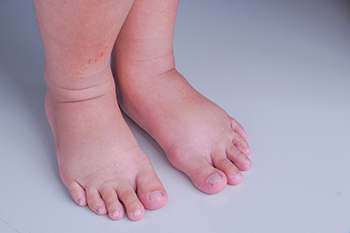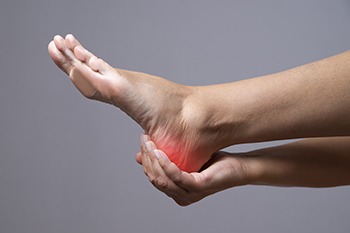
Many runners experience stiffness in their ankles after running. This is a common side effect of the amount of force that passes through the ankle during a run. It can affect the range of motion and mobility of the ankle. In some cases, it may become difficult to bear weight and lead to limping. Studies have indicated that the faster you run, the more likely you are to develop ankle stiffness. Further, the way you run may affect the ankle as well. For example, a heel-first footstrike is more likely to contribute to ankle stiffness than a toe-first style of running. Other possible causes of ankle stiffness include a sprain, arthritis, or plantar fasciitis. Lastly, check the wear and tear on your running shoes. It may be time to replace them, which is recommended by running experts between 350 and 500 miles. Shoes that lack ample support may contribute to ankle stiffness after running. For an examination and diagnosis to determine the cause of your ankle stiffness, it is suggested that you consult a podiatrist before it gets worse.
Ankle pain can be caused by a number of problems and may be potentially serious. If you have ankle pain, consult with Cary Golub, DPM from New York. Our doctor will assess your condition and provide you with quality foot and ankle treatment.
Ankle pain is any condition that causes pain in the ankle. Due to the fact that the ankle consists of tendons, muscles, bones, and ligaments, ankle pain can come from a number of different conditions.
Causes
The most common causes of ankle pain include:
- Types of arthritis (rheumatoid, osteoarthritis, and gout)
- Ankle sprains
- Broken ankles
- Achilles tendinitis
- Achilles tendon rupture
- Stress fractures
- Bursitis
- Tarsal tunnel syndrome
- Plantar fasciitis
Symptoms
Symptoms of ankle injury vary based upon the condition. Pain may include general pain and discomfort, swelling, aching, redness, bruising, burning or stabbing sensations, and/or loss of sensation.
Diagnosis
Due to the wide variety of potential causes of ankle pain, podiatrists will utilize a number of different methods to properly diagnose ankle pain. This can include asking for personal and family medical histories and of any recent injuries. Further diagnosis may include sensation tests, a physical examination, and potentially x-rays or other imaging tests.
Treatment
Just as the range of causes varies widely, so do treatments. Some more common treatments are rest, ice packs, keeping pressure off the foot, orthotics and braces, medication for inflammation and pain, and surgery.
If you have any questions, please feel free to contact our offices located in Williston Park, and Long Beach, NY . We offer the newest diagnostic and treatment technologies for all your foot care needs.




